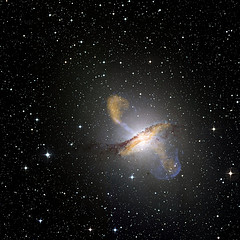The inevitable high-profile backlash at steampunk’s oversaturation of the cultural Zeitgeist finally arrives (and about time, too). Take it away, Charlie Stross:
It’s not that I actively dislike steampunk […] It’s just that there’s too damn much of it about right now, and furthermore, it’s in danger of vanishing up its own arse due to second artist effect. (The first artist sees a landscape and paints what they see; the second artist sees the first artist’s work and paints that, instead of a real landscape.)
We’ve been at this point before with other sub-genres, with cyberpunk and, more recently, paranormal romance fang fuckers bodice rippers with vamp- Sparkly Vampyres in Lurve: it’s poised on the edge of over-exposure. Maybe it’s on its way to becoming a new sub-genre, or even a new shelf category in the bookstores. But in the meantime, it’s over-blown. The category is filling up with trashy, derivative junk and also with good authors who damn well ought to know better than to jump on a bandwagon.
If I was less busy today, I’d spin out a lengthy rant about the inevitability of this sort of cultural shift; it happens all the time in the world of music, for example (and it happens insanely fast nowadays, thanks to music being predominantly a digital domain populated by the young and computer-savvy). But for now, a brief summary:
- the culture industry makes money by selling newness, but it can’t sell anything that’s too new, because the too-new is intimidatingly weird to the average consumer;
- meanwhile, neophile subcultures agglomerate, eventually gaining a cultural critical mass which grants them visibility on the fringes of mainstream culture;
- the too-new suddenly becomes the just-new-enough, an appealing holiday destination for the more adventurous consumer;
- LAND-GRAB! (a.k.a. PROFIT!)
- Coda: neophiles then abandon the freshly-gentrified subculture in favour of the next too-new thing; this is the root cultural impulse behind hipsterdom’s perpetual “they sucked after their first album” lament, which is now (ironically enough) itself subject to colonisation and gentrification. Just how meta would you like it, sir?)
Subcultural colonialism, in other words, works in very similar ways to the other, older sort of colonialism… though I don’t mean to imply its repercussions are anywhere near as serious. It’s a similarity of process rather than impact, you might say.
Stross goes on to point out that romanticising the Victorian era is a rather odd thing to do, given that it was extraordinarily grim for the vast majority of people. Personally I think that’s a large part of the impulse; I’m reading a rather excellent book on the era at the moment (Building Jerusalem by Tristram Hunt), and it makes the point that the early phases of the industrial revolution were marked by a wistful yearning for the pastoral/feudal England it had left behind… an England in many ways as mythological and idealised as steampunk’s glossy faux-Victoriana.
Because we know we can never go back, we feel free to reimagine the past as a haven from of the existential horrors of The Now; dreaming about a holiday you can never take is safe, because you can never be disappointed by the reality. Yesterday’s Now isn’t so scary, firstly because its bad sides are almost unimaginable from our current vantage point of Panglossian privilege, and secondly because our very existence implies it was survivable at a civilisational scale – two certainties that The Now doesn’t deliver.
The past is a poster on your bedroom wall. Hi-ho, atemporality.
 That’s
That’s  If you’re waiting patiently for saintly extraterrestrials to come and rescue us from our civilisational follies, you might want to reassess your hopes.
If you’re waiting patiently for saintly extraterrestrials to come and rescue us from our civilisational follies, you might want to reassess your hopes.